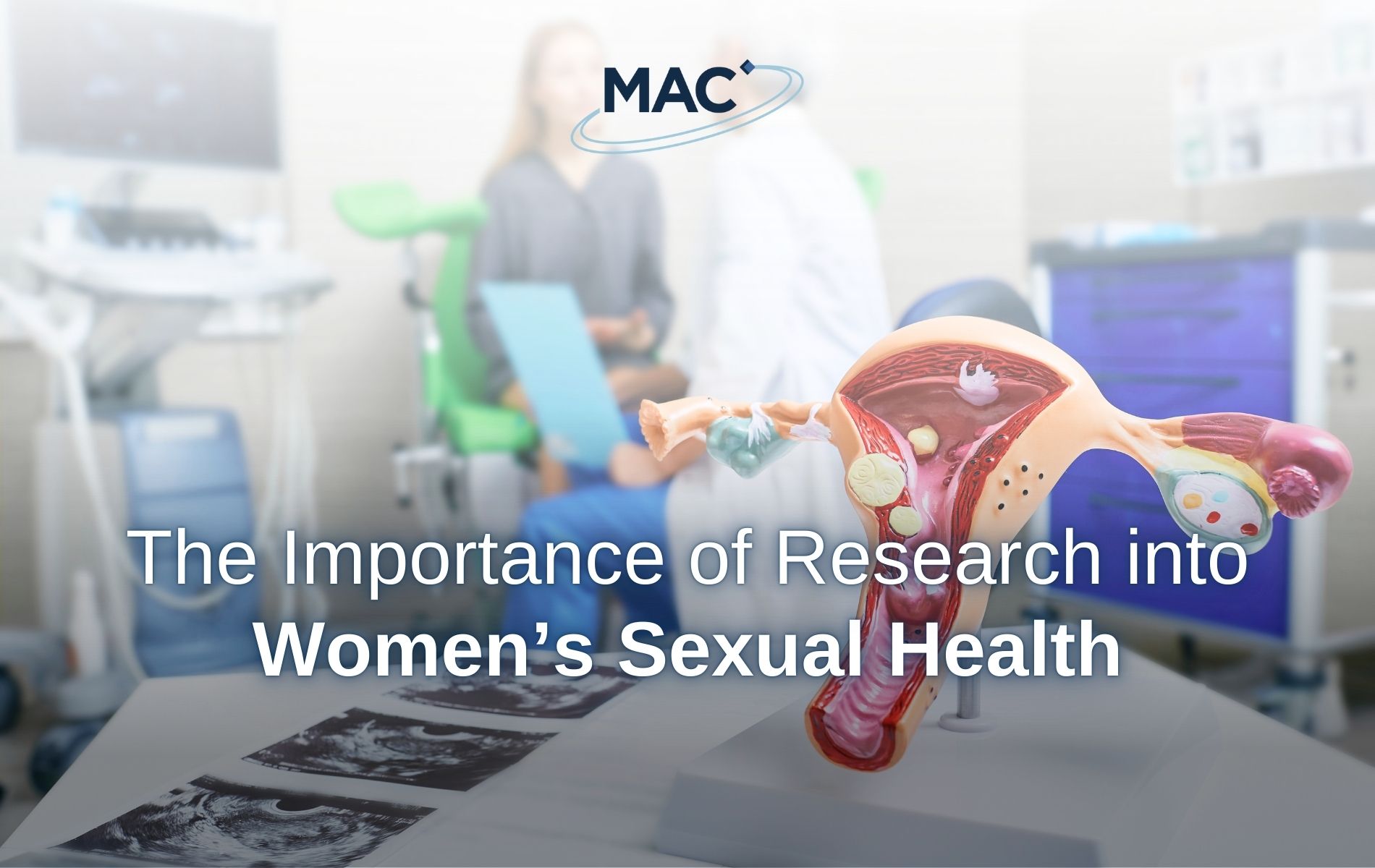Less than half of women in the UK with severe reproductive health conditions seek help, and those who do face delays in diagnosis and doubt about their symptoms1. This is despite the significant impact women’s health conditions have on their lives, with one in eight women in the UK taking time off work in the last 12 months due to symptoms linked to their monthly periods2.
Stigma and the normalisation of women’s pain and discomfort have resulted in poor awareness of reproductive and sexual health conditions in the public and in healthcare3. This Sexual Health Week, we are highlighting the necessity of further research in this area.
Why women’s health research matters
Women’s health is significantly under-represented in research, with male-only clinical trials nearly double the number of female-only studies in the UK4. This is particularly true in reproductive health, where there is five times more research into erectile dysfunction, a condition affecting 19% of people assigned male at birth, than into premenstrual syndrome, which affects 90% of people assigned female at birth5.
By lessening this disparity, we can further our global understanding of reproductive and sexual healthcare and ensure that more women can access information and treatment. Further research can lead to:
1. Improved healthcare and treatments
With a better understanding of reproductive and sexual health, researchers will be able to develop more tailored and effective treatments for various conditions. Research could also improve diagnostic waiting times for conditions like endometriosis, which has an average diagnosis time of almost nine years in the UK6.
2. Improved quality of life
Female sexual health is closely linked to psychological wellbeing, and impaired sexual functioning is associated with reduced quality of life. Some of the most common outcomes for sexual health challenges include anxiety and depression7. Research in this field could allow healthcare professionals to develop a more holistic approach to women’s health.
3. Improved diversity in research
Prioritising inclusivity in clinical research can help to close the gender health gap and ensure that treatments are safe and effective for underrepresented communities. This is beneficial worldwide as researchers would be driven to develop better health solutions that consider the needs of all.
4. Improved education and training
Gender bias and a lack of understanding of women’s health can lead to women’s concerns being misdiagnosed or dismissed. Women are significantly more likely to receive a misdiagnosis, leading to delays in treatment and, in some cases, death8. Increased funding for gynaecological research would enable improved medical knowledge and public education, which may reduce misdiagnosis.
5. Better-informed public health policy
Research provides crucial data used to inform government policies, initiatives, and public health strategies. The more data used to advise these actions, the better they will be able to address public healthcare needs.
Getting support
One third of women in the UK will develop a reproductive health problem in their lifetime5, but despite the prevalence of these issues, many are not diagnosed. Lack of awareness of different female reproductive and sexual health issues is a contributing factor in this.
Understanding the symptoms associated with various conditions can help you determine whether your experience fulfils diagnostic criteria. Many charities and awareness groups, such as Endometriosis UK9, The Vulval Pain Society10, and Women’s Health Concern11, offer information and support for these conditions. Reproductive and sexual health is complex, so you should also speak to your GP or a specialist medical consultant if you have concerns about your health.
Clinical trials
MAC Clinical Research is currently looking for people to participate in a clinical trial who are diagnosed with vulvodynia or are living with pain in the vulva (the outer part of the female genitals) where other causes (such as sexually transmitted infections or candidiasis) have been ruled out. With your participation, you may be able to contribute to scientific research, which may lead to a new medicine to help people living with vulvodynia.
If you are eligible and choose to take part, you may be compensated up to £1,730 for your time and commitment, plus reasonable travel expenses will be reimbursed or transport provided.
To find out more and register your interest, visit our vulvodynia research webpage.
References
1 Parliament UK – Women’s reproductive health conditions
2 Bupa – Why more than a million women are keeping period sick days a secret
3 Committees, UK Parliament – ‘Medical misogyny’ is leaving women in unnecessary pain and undiagnosed for years
4 The Guardian – ‘Concerning’ lack of female-only medical trials in UK, say health experts
5 The Guardian – ‘Women have been woefully neglected’: does medical science have a gender problem?
6 Endometriosis UK – Getting diagnosed
7 Arcos-Romero and Calvillo (2023) – Sexual Health and Psychological Well-Being of Women: A Systematic Review
8 Field Fisher – Women are unheard, misdiagnosed and undertreated




